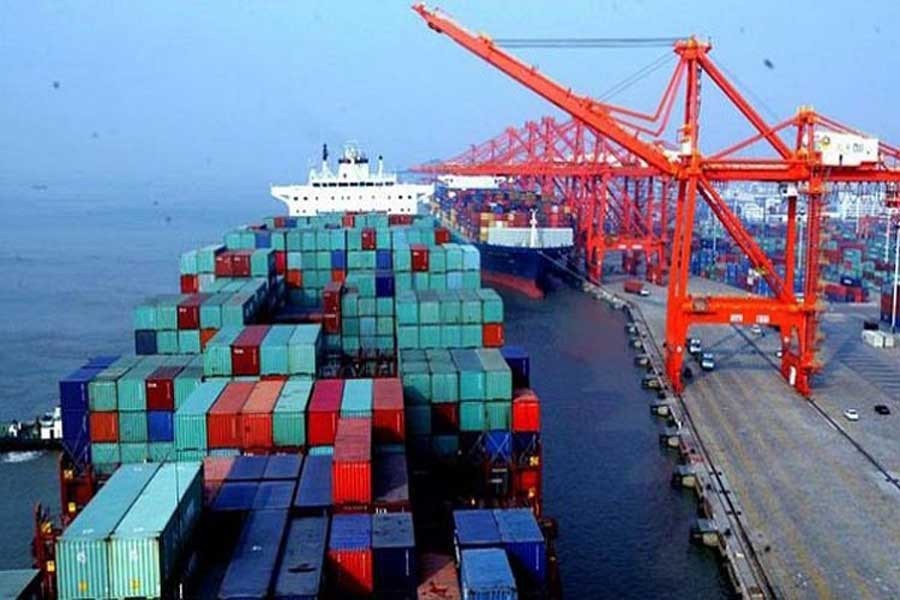Increased capacity for container handling by the inland container depots (ICDs) is a good sign. Besides being increasingly competent and efficient, these private depots contribute considerably to reducing the load at the country's main sea port at Chottogram. A report published in this newspaper says overall container handling by the seventeen private depots of the country grew nearly 16 per cent in the past year.
According to the inland container operators, this growth, especially in terms of volume, is the highest since the launch of ICD business in the country in late 1980s. The growth in the depots' operation is remarkable as the cargo handled by them is at least 3.0 percentage points higher than the Chottogram Port container handling last year. Export-cargo handling by the ICDs grew more than 25 per cent in 2021 in a robust rebound after the opening up of the economies in Europe and North America. Import handling, however, showed a negative growth by nearly 2.3 per cent. Some operators are hopeful that the trend will continue in the coming months, particularly in handling RMG export cargo as orders are flowing in smoothly.
As against the performance of the privately owned ICDs, that of the country's main sea port is rather sluggish, to say the least. The Federation of Bangladesh Chambers of Commerce and Industry (FBCCI) has flagged the urgent need of improving port efficiency and capacity expansion in order to cater to the demands that, they believe, would soon go up. The apex Chamber predicts that if production starts in full swing in Bangabandhu Industrial City and other special economic zones of the country, pressure on the prime seaport will increase manifold. At a recent standing committee meeting of the Chamber, it was pointed out that the cost of doing business could be reduced by at least five per cent if the capacity of Chittagong port is enhanced, and this would surely be a plus point for foreign entrepreneurs to invest in Bangladesh.
What the private ICDs have done despite many bottlenecks is commendable. But it is extremely important that the prime sea port, too, upscale its services, overhaul infrastructure with modern technology, and expand capacity in order to cope with the increasing pressure of both in-bound and out-bound cargoes. The business community of the country has been quite frank in suggesting measures from time to time to improve port facilitation. Some improvements, reportedly, have come along, still as the FBCCI has noted the crux of the issue is cost of doing business-- an area where Bangladesh has long been lagging. The country ranks at the near bottom in doing business index. If port facilitation can cause a major breakthrough in this regard, all-out efforts must be in place. After all, in the fiercely competitive business world of today, reducing cost and time overrun is the most sought after goal of trade and business facilitation of all kinds.


